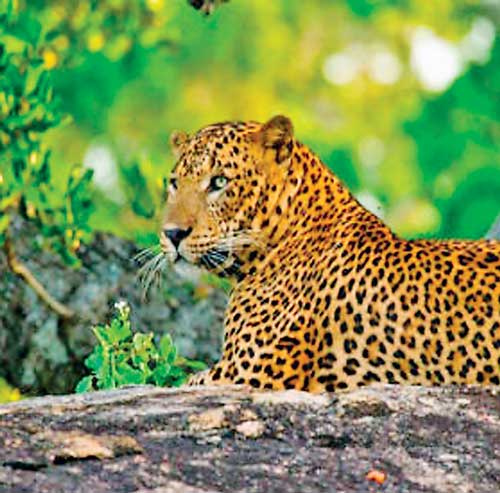Thursday Feb 19, 2026
Thursday Feb 19, 2026
Friday, 7 October 2016 00:00 - - {{hitsCtrl.values.hits}}
AFP: A global conference on wildlife trade wrapped up on Tuesday after adopting a slew of decisions to curb rampant trafficking of threatened species such as sharks and pangolins.
Officials and conservationists meeting under the Convention on International Trade in Endangered Species (CITES) have been gathered in Johannesburg for the past 11 days seeking to toughen restrictions on the trade of species nearing extinction.
While the negotiations at times exposed bitter divisions -- with African nations at one point accusing Western charities of “dictating” how to protect their elephants -- campaigners hailed increased protection for hundreds of plant and animal species.
“We were encouraged that governments fully embraced the precautionary principle by making decisions in the best interest of the species in the wild,” said Susan Lieberman, vice president of policy at the Wildlife Conservation Society.
All trade of the reclusive, scale-covered pangolin -- the world’s most heavily trafficked mammal, prized as an edible delicacy and an ingredient in Asian traditional medicine -- will now be banned.
International trade in African grey parrots, whose numbers have been decimated by poaching in recent years, has also been outlawed, while 13 species of sharks and rays won increased protection.
But a vote against strengthening the ban on ivory sales exposed a sharp split over elephant conservation.
A coalition of 29 African countries -- led by Kenya and Benin -- had pressed for African elephants to be put in the CITES “Appendix I” category which would ban all trade of tusks.
But South Africa, Namibia and Zimbabwe rejected the proposal, saying they should continue to be excluded from Appendix I as they have stable or growing elephant populations.
Earlier CITES had voted against proposals by Namibia and Zimbabwe to be allowed to sell off their stockpiles accrued from natural deaths and poaching seizures to fund projects in communities living close to elephants.
International trade in ivory has been banned since 1989, but legal domestic markets have continued in some countries, and CITES has allowed sales of African ivory stockpiles to Japan and China in 1999 and 2008.
Despite such divisions, CITES chief John Scanlon insisted the global community had made enormous headway in protecting threatened species, calling the meeting “a game changer for the planet’s most vulnerable wild animals and plants”.
Illegal trade in wildlife is valued at around $20 billion (18 billion euros) a year, according to CITES.
The conference is held every three years at a different location, with the next to take place in Sri Lanka in 2019.